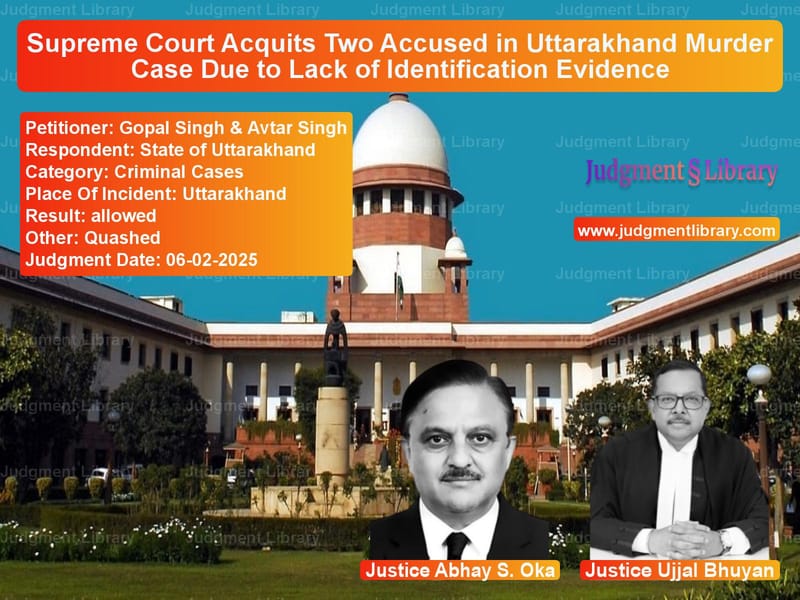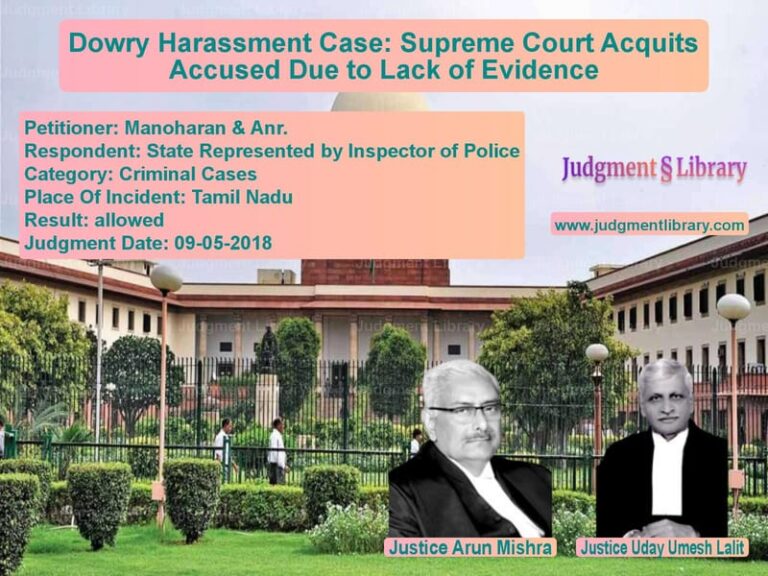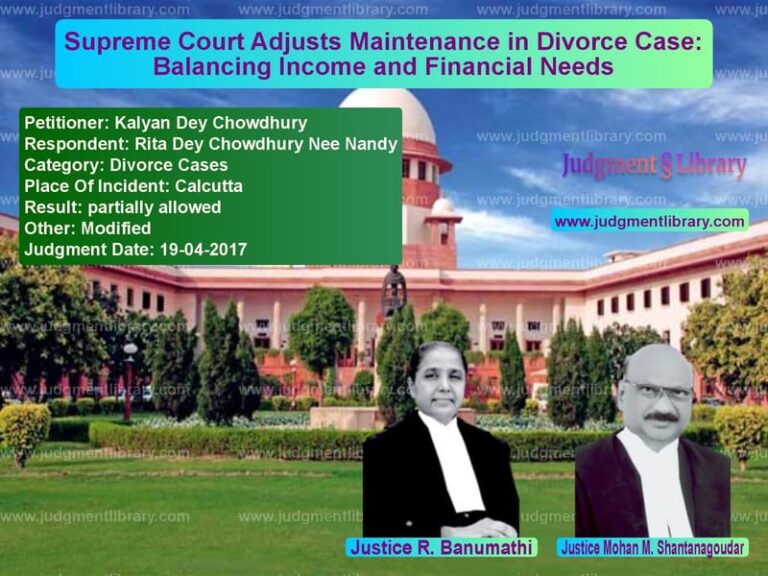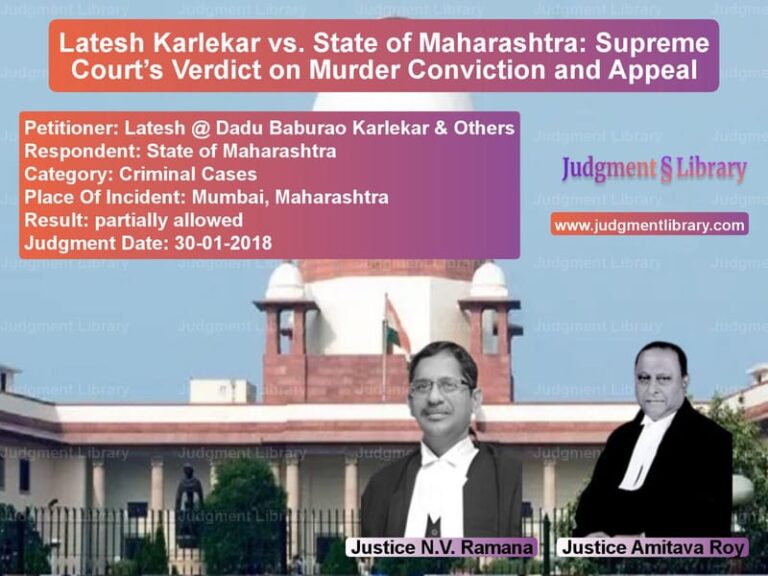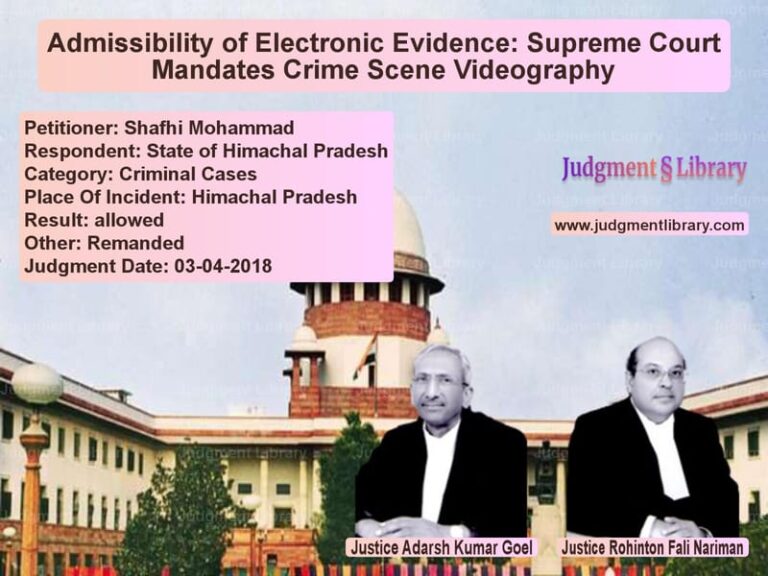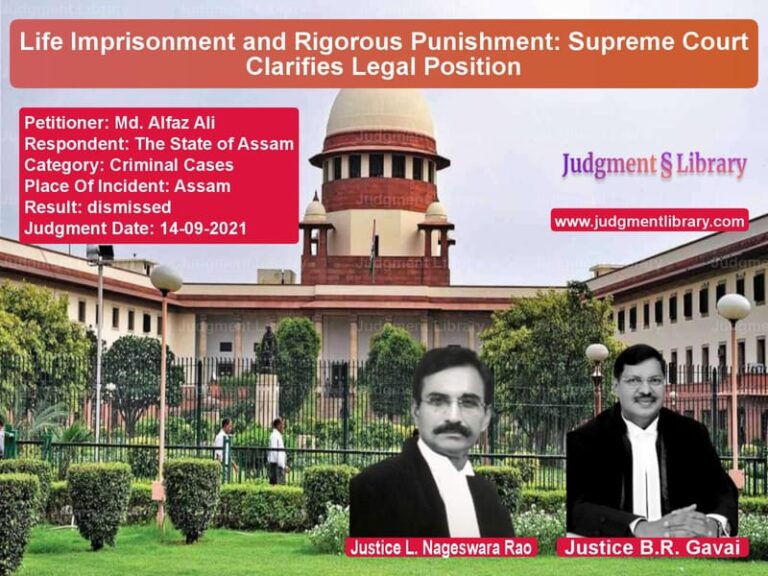Supreme Court Acquits Two Accused in Uttarakhand Murder Case Due to Lack of Identification Evidence
In a landmark decision, the Supreme Court of India acquitted two men, Gopal Singh and Avtar Singh, who had been convicted for murder under Sections 302 and 323 read with Section 34 of the Indian Penal Code (IPC). The judgment overturned the rulings of the Sessions Court and the Uttarakhand High Court, citing lack of identification evidence as the key reason for acquittal.
Background of the Case
The case originated from a murder that occurred on November 21, 1997, in Uttarakhand. The deceased, Gaje Singh, was allegedly attacked by a group of five accused while he was accompanying his brother-in-law, Soban Singh (PW-1). The prosecution claimed that the accused threw stones at the victim and later assaulted him with sticks, leading to his death.
The Sessions Court convicted all five accused under Sections 302 and 323 read with Section 34 of the IPC and sentenced them to life imprisonment. The High Court later altered the conviction to Section 304 Part II of the IPC for Gopal Singh and Avtar Singh while maintaining their guilt.
Key Legal Issues
- Whether the accused were properly identified in court as the perpetrators of the crime.
- Whether the circumstantial and eyewitness evidence presented by the prosecution was sufficient to establish guilt beyond a reasonable doubt.
- Whether the failure to conduct a Test Identification Parade (TIP) affected the validity of the conviction.
Arguments by the Appellants
The appellants, Gopal Singh and Avtar Singh, challenged their conviction on the following grounds:
- The eyewitnesses, PW-1 (Soban Singh) and PW-3 (Raghuvir Singh), never identified them in court as the perpetrators of the crime.
- There was no direct evidence linking them to the assault.
- The prosecution’s case relied on circumstantial evidence, which failed to establish their guilt conclusively.
- The courts below overlooked the fact that they were not named in any Test Identification Parade (TIP) before the trial.
“The prosecution has failed to prove the identity of the accused beyond reasonable doubt. Without proper identification, the conviction cannot stand.”
Arguments by the Respondent
The State of Uttarakhand argued:
- The accused were named in the FIR and were part of the group that attacked the deceased.
- PW-1 and PW-3 gave detailed accounts of the assault and had earlier identified the accused.
- The High Court had already reduced the conviction from Section 302 to Section 304 Part II, considering the nature of the evidence.
- The prosecution’s case should not fail merely because of a procedural lapse in court identification.
“The absence of a formal Test Identification Parade should not negate the evidence of eyewitnesses who have consistently implicated the accused.”
Supreme Court’s Observations
The Supreme Court noted several critical flaws in the prosecution’s case:
- The prosecution failed to establish the identity of the accused in court, as both PW-1 and PW-3 did not identify them during the trial.
- The failure to conduct a Test Identification Parade (TIP) further weakened the prosecution’s case.
- Other witnesses, including CW-1 and CW-2, provided only hearsay evidence and did not directly implicate the accused.
- The High Court’s decision to modify the conviction to Section 304 Part II was based on the same evidence, which was found insufficient for full murder conviction.
“It is a fundamental principle of criminal law that the prosecution must establish the identity of the accused beyond a reasonable doubt. The failure to do so renders the conviction unsustainable.”
Final Judgment
The Supreme Court ruled:
“As there is no direct evidence linking the appellants to the crime and no proper identification by witnesses, the conviction cannot be sustained. The appellants are acquitted of all charges. Their bail bonds are canceled.”
The ruling overturned the decisions of both the Sessions Court and the Uttarakhand High Court, ensuring that the accused were not wrongfully punished based on insufficient evidence.
Impact of the Judgment
This ruling reinforces key legal principles:
- Proper identification of accused persons in court is essential for securing a conviction.
- Failure to conduct a Test Identification Parade (TIP) can weaken a prosecution’s case significantly.
- Circumstantial evidence must be strong enough to eliminate all reasonable doubts regarding the accused’s involvement.
- The judiciary must ensure that procedural lapses do not lead to wrongful convictions.
By acquitting Gopal Singh and Avtar Singh, the Supreme Court has reaffirmed the principle that criminal convictions must be based on concrete and reliable evidence, ensuring justice is served fairly.
Petitioner Name: Gopal Singh & Avtar Singh.Respondent Name: State of Uttarakhand.Judgment By: Justice Abhay S. Oka, Justice Ujjal Bhuyan.Place Of Incident: Uttarakhand.Judgment Date: 06-02-2025.
Don’t miss out on the full details! Download the complete judgment in PDF format below and gain valuable insights instantly!
Download Judgment: gopal-singh-&-avtar-vs-state-of-uttarakhand-supreme-court-of-india-judgment-dated-06-02-2025.pdf
Directly Download Judgment: Directly download this Judgment
See all petitions in Murder Cases
See all petitions in Bail and Anticipatory Bail
See all petitions in Judgment by Abhay S. Oka
See all petitions in Judgment by Ujjal Bhuyan
See all petitions in allowed
See all petitions in Quashed
See all petitions in supreme court of India judgments February 2025
See all petitions in 2025 judgments
See all posts in Criminal Cases Category
See all allowed petitions in Criminal Cases Category
See all Dismissed petitions in Criminal Cases Category
See all partially allowed petitions in Criminal Cases Category

